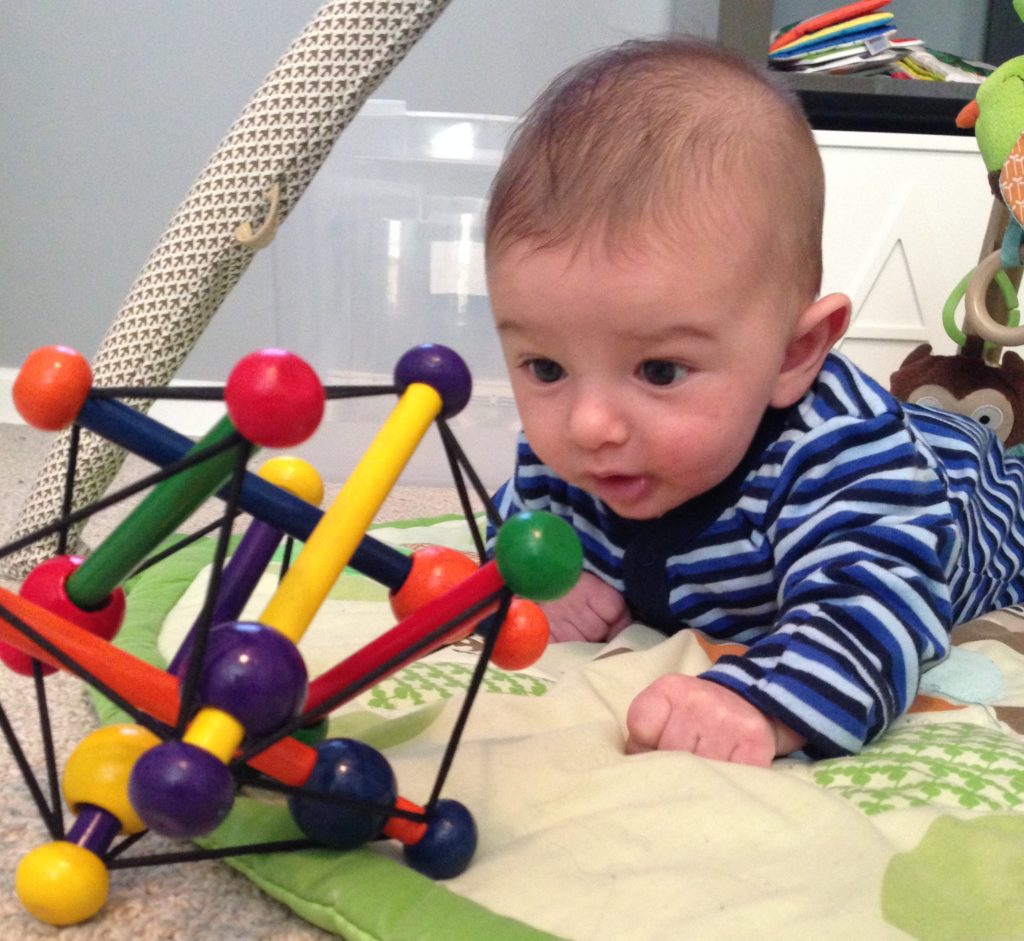
Science, Technology, Engineering, and Math; our future, our present, our world! These concepts are not just relevant in terms of the job market or the future of education, but it is what’s important and relevant right now and it is trickling down to babies. Do babies need to have STEM skills? They most certainly do and you will probably be surprised to know, they are already “wired” to cultivate these skills. Let’s break down each concept and look at how it applies to babies and toddlers.
 Science is really just a way of thinking, observing, experimenting, and asking questions. Before babies are mobile, they are nothing if not little scientists, observing and taking in their world all day long. Babies are constantly watching and learning from what they see. Toddlers are intuitively questioning everything, attempting to make sense of the world.
Science is really just a way of thinking, observing, experimenting, and asking questions. Before babies are mobile, they are nothing if not little scientists, observing and taking in their world all day long. Babies are constantly watching and learning from what they see. Toddlers are intuitively questioning everything, attempting to make sense of the world.
Technology is a way of being inventive, identifying problems, coming up with solutions, and making things work. If you have ever watched a toddler at play, they are using technology the whole time as shapes fit into a hole, cars drive on a track, and blocks stack high.
Take that a step further and babies are little engineers, designing, creating, and building things that work. Building forts, bug houses, and leprechaun traps. Using ingenuity and creativity with a boundless imagination.
Mathematics is an integral component of so many early skills. Anything that involves counting, sorting, categorizing, sequencing, patterning, or exploring shapes, size, or volume is an early math skill. Without even knowing it, babies and toddlers use these skills constantly during play and exploration.
Part of what makes babies and young children such great scientists is their natural curiosity and willingness to repeat actions that interest them. They have a truly innate need to explore the world and attempt to make sense of it all. Studies tell us that when this natural curiosity is not cultivated, it dies by third grade and children lose interest in science and math.
The STEM Starts Now Program will offer age appropriate suggestions every week to put your baby on track to be a contributing member of the 21st Century!
References:
Barbre. J. (2017). Baby Steps to STEM Infant and Toddler: Science, Technology, Engineering, and Math Activities. Redleaf Press.
NAEYC (National Association for the Education of Young Children). (2012). Technology and Interactive Mediaas Tools in Early Childhood Programs Serving Children from Birth through Age 8. A joint position statement of the National Association for the Education of Young Children and the Fred Rogers Center for Early Learning and Children’s Media at Saint Vincent College. Retrieved from NAEYC Technology and Interactive media as tools in early childhood programs
NEA (National Education Association). (2015). Science, Technology, Engineering, and Math (STEM). An Educators Guide to the Four C’s: Preparing 21st Century Students for Global Society. Retrieved from http://www.nea.org/assets/docs/A-Guide-to-Four-Cs.pdf

